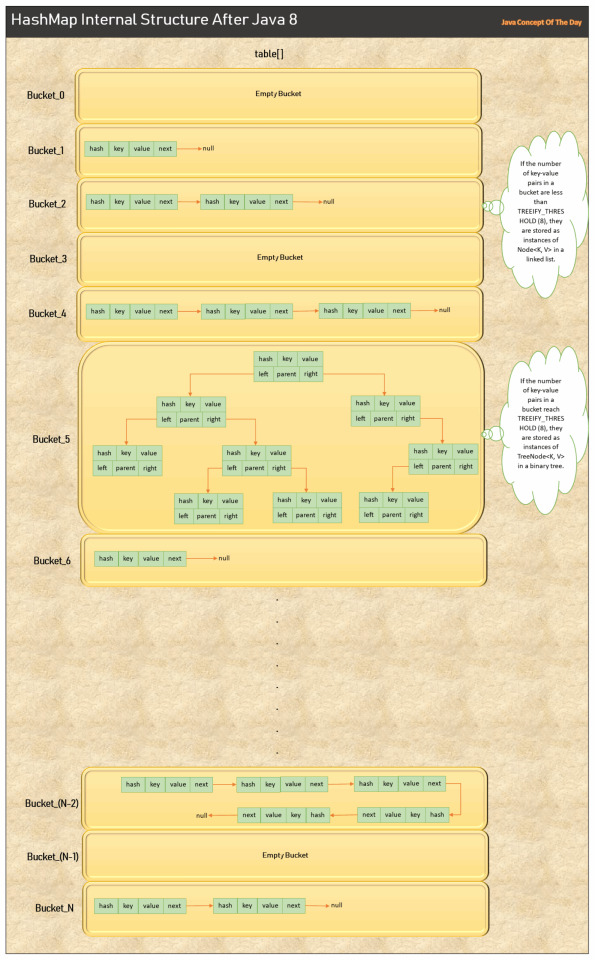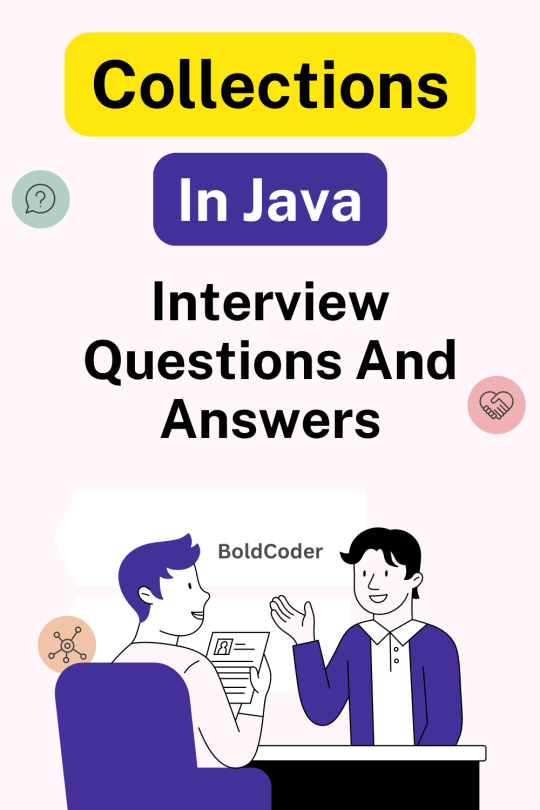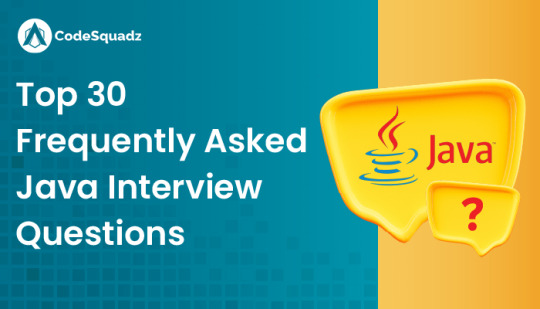#java-interview-questions
Explore tagged Tumblr posts
Text
Java Projects for Your Resume: Why They Matter

Java Projects for Your Resume: Why They Matter
Adding Java projects to your resume can really help you land a job. Employers want to see real experience, and showcasing projects shows that you know how to apply your skills. A solid portfolio stands out more than just having certifications. These projects reflect your problem-solving skills, creativity, and understanding of Java basics and advanced concepts. Whether you’re just graduating or changing careers, having practical projects is important. Students taking Java course in Coimbatore are often encouraged to create live applications to boost their resumes and improve their chances in job interviews.
Simple Java Projects for Beginners
If you're just starting out, try adding basic Java projects like a calculator, to-do list, or temperature converter to your resume. These projects are great for grasping object-oriented programming and basic GUI design. They’re usually part of beginner exercises in Java training programs in Coimbatore, helping you learn coding logic efficiently. Working on simple applications also enhances your debugging and problem-solving skills, which are key for coding interviews. It’s a good idea for beginners to focus on these smaller projects before tackling more advanced systems.
Intermediate Java Projects That Impress
Once you’ve got the basics down, you can move on to intermediate-level Java projects for your resume, like library management systems, quiz apps, or student record management tools. These projects show that you have a better grasp of file handling, user authentication, and data structures. Many Java course in Coimbatore make sure students work on these types of projects to build real-world problem-solving skills. These applications don’t just show off your technical skills; they also demonstrate that you can create user-friendly programs.
Advanced Java Projects That Stand Out
For those with more experience, advanced projects could include chat applications, e-commerce websites, or banking systems using JavaFX or Spring Boot. These projects show that you’re skilled in frameworks, APIs, and databases. Many top Java training programs in Coimbatore include this type of work in their syllabus. Having these projects on your resume proves to employers that you’re ready for the job and can manage larger systems. Using GitHub to share your source code, along with documentation and screenshots, can give you an edge.
Importance of Full-Stack Java Projects
A full-stack Java project covers both the frontend and backend, often using HTML, CSS, JavaScript, Java, and MySQL. These projects help show that you’re not just focused on the backend but can also manage UI and databases. Joining a Java course in Coimbatore that includes full-stack content will give you an advantage in today’s job market. Such projects mimic real work environments and prove you can handle end-to-end application development.
Using Java Projects to Show Teamwork
Employers often look for teamwork skills. Including team-based Java projects on your resume, where you collaborated with others, demonstrates your ability to communicate, manage tasks, and work with version control systems like Git. Group projects in Java training programs in Coimbatore teach students how to build scalable applications with effective task management. Showcasing these projects on your resume emphasizes both your technical abilities and your teamwork qualities.
How to Present Java Projects on a Resume
When listing Java projects on your resume, make sure to include the project title, a brief description, the technologies you used, and your role in the project. Focus on the impact of your work—did it solve a real problem or improve performance? Students in Java course in Coimbatore learn how to document and present their projects for interviews. Adding links to demos or GitHub repositories is a nice touch. How you present your projects can help you stand out to potential employers.
Mistakes to Avoid While Showcasing Java Projects
Avoid listing too many projects that aren’t complete or too similar. Don’t just focus on frontend work; employers want to see sound coding and backend integration too. Students in Java training programs in Coimbatore are advised to keep their code clean, well-documented, and free of bugs. Steer clear of copying projects from the internet; instead, focus on customizing and innovating based on your learning. This shows creativity and confidence, and you'll be better prepared for questions about your projects in interviews.
How Projects Improve Your Job Readiness
Including Java projects on your resume is vital for showing you’re ready to work. It shows you can create practical applications with your skills. Employers want candidates who can contribute from day one. A strong portfolio, supported by a solid Java course in Coimbatore or good Java training program, can greatly improve your hiring chances. Recruiters appreciate real-world experience over just theoretical knowledge or course certificates.
Conclusion: Learn, Build, and Stand Out with Xplore IT Corp
If you want to get good at Java and build impressive projects for your resume, then a structured Java course in Coimbatore is a great place to start. At Xplore IT Corp, we provide relevant Java training that includes hands-on project development, resume-building workshops, and full placement support. With real experience and guidance, you can create a portfolio that impresses employers. Let your Java projects show your skills learn, build, and grow with us at Xplore IT Corp.
FAQs
1. What types of Java projects should I include in my resume?
Include a mix of simple, intermediate, and advanced projects to showcase various Java skills like OOPs, file handling, APIs, and databases.
2. How many Java projects should I list on my resume?
List 2 to 4 well-documented projects. Focus on quality rather than quantity, ensuring each project highlights a unique skill set.
3. Do Java projects really help in getting a job?
Yes, they provide evidence of your coding skills and can help you make a strong impression in interviews, especially for roles needing practical programming.
4. Where can I get help for building Java projects?
Enrolling in a Java course in Coimbatore, like the one offered by Xplore IT Corp, can provide expert guidance, resources, and structured projects.
5. Can I use GitHub to showcase my Java projects?
Definitely! GitHub is a great platform to display your work to potential employers. Include links to your GitHub projects in your resume for easy access.
#Java programming#Java developer#Java applications#Java frameworks#Java projects#Java coding#Java syntax#object-oriented programming#Java backend#Java frontend#Java database connectivity#Java Spring Boot#JavaFX#Java GUI#Java tools#Java version control#Java IDE#Java servlet#Java web development#Java interview questions
0 notes
Text
Java Interview Questions and Answers: Your Ultimate Preparation Guide

That’s why we’ve created "Java Interview Questions and Answers: Your Ultimate Preparation Guide" to help you get fully prepared and stand out from the competition.
Java remains one of the most widely used programming languages across the tech industry. From building enterprise-grade applications to Android development and cloud-based systems, Java is a powerful, object-oriented language that has stood the test of time. As a result, Java continues to be a core requirement in thousands of job listings globally, and technical interviews often focus heavily on Java fundamentals, coding practices, and real-world problem-solving.
This guide offers a comprehensive breakdown of the most commonly asked Java interview questions, along with expert-level answers that explain not just the what, but the why—helping you build a strong conceptual foundation.
Why This Guide Matters
"Java Interview Questions and Answers: Your Ultimate Preparation Guide" is designed to equip you with the most relevant, up-to-date, and frequently asked questions across various job roles and experience levels. Whether you're a fresher just entering the field or a seasoned Java developer with years of experience, the questions included in this guide cover all the core areas expected in a Java interview.
With structured answers, real-world examples, and technical explanations, this guide helps you understand each topic in depth—so you’re not just memorizing, but truly learning.
Key Topics Covered in This Guide
Here are the primary categories of Java interview questions and answers covered in this ultimate preparation guide:
1. Core Java Basics
These questions test your fundamental knowledge of Java, including syntax, control structures, and data types. Examples include:
What are the main features of Java?
What is the difference between JDK, JRE, and JVM?
Explain the concept of platform independence in Java.
2. Object-Oriented Programming (OOP) in Java
As Java is built around the OOP paradigm, interviewers often assess your grasp of these principles:
What is encapsulation, and why is it important?
Explain inheritance with examples.
What is polymorphism, and how is it implemented in Java?
3. Exception Handling
Proper exception handling is critical in robust Java applications. Common questions include:
What is the difference between checked and unchecked exceptions?
How do try, catch, finally, and throw work together?
What is the purpose of custom exceptions?
4. Collections Framework
This is a favorite topic in Java interviews due to its practical importance:
What is the difference between ArrayList and LinkedList?
How does HashMap work internally?
What are the differences between Set, List, and Map?
5. Multithreading and Concurrency
Java supports concurrent programming, and questions in this category test your knowledge of threading concepts:
What is a thread in Java?
Explain the differences between Runnable and Thread.
How do you avoid thread-safety issues in Java applications?
6. Java 8 and Beyond
Modern Java versions introduced features like lambdas, streams, and functional programming:
What are lambda expressions?
How do you use the Stream API in Java 8?
What is the difference between Optional and null?
7. JVM Internals and Memory Management
Senior-level candidates are often expected to understand how Java works under the hood:
How does garbage collection work in Java?
What are the different memory areas in JVM?
How can memory leaks be detected and avoided?
8. Design Patterns and Best Practices
To demonstrate architectural thinking, candidates may be asked:
What is the Singleton pattern and how do you implement it?
Explain the Factory and Observer patterns.
What are SOLID principles in Java programming?
Sample Questions from the Guide
Here are a few samples from "Java Interview Questions and Answers: Your Ultimate Preparation Guide":
1: What is the difference between ‘==’ and .equals() in Java? Ans: == checks reference equality, meaning whether two references point to the same object. .equals() checks logical equality, meaning whether two objects have the same value. For example, two different String objects with the same value will return true using .equals() but false using ==.
2: What is a HashMap, and how does it work internally? Ans: A HashMap stores key-value pairs. It uses a hash function to compute an index where the value should be stored in an array. If multiple keys hash to the same index, Java handles collisions using a linked list or a balanced tree (as of Java 8).
3: How does Java achieve platform independence? Ans: Java code is compiled into bytecode by the Java compiler. This bytecode is platform-independent and can be executed by the Java Virtual Machine (JVM), which is available on multiple operating systems.
How to Use This Guide for Effective Interview Prep
To get the most out of "Java Interview Questions and Answers: Your Ultimate Preparation Guide", follow these steps:
Study the concepts – Don’t just read the answers; understand the reasoning behind them.
Practice coding – Use platforms like HackerRank, LeetCode, or Codeforces to apply Java in real coding problems.
Mock interviews – Simulate real interview scenarios with peers or mentors to practice verbalizing your thoughts.
Build small projects – Implement real-world solutions to solidify your understanding of Java concepts.
Keep learning – Stay up-to-date with Java updates and community discussions to stay ahead of the curve.
Conclusion
Preparation is key to succeeding in a Java interview, and "Java Interview Questions and Answers: Your Ultimate Preparation Guide" is your all-in-one resource for that journey. By mastering the topics covered in this guide, you'll gain the confidence and knowledge needed to impress your interviewers and secure your desired role in the tech industry.
0 notes
Text
HashMap Related Interview Questions And Answers
These are the some best of HashMap related interview questions and answers for both freshers and experienced Java professionals. I hope they will be helpful for your technical interview. Java HashMap Interview Questions And Answers : 1) What is HashMap in Java? HashMap is a class in Java which implements Map interface. It is a data structure which holds the data as key-value pairs for…

View On WordPress
0 notes
Text
Java is a programming language high-level, fully object oriented, robust, secure, platform independent, high-performance, multithreaded, and portable as well.
1 note
·
View note
Text
0 notes
Text
Master Java Interview Questions for 5 Years Experience with SynergisticIT
Looking to ace your Java interview? SynergisticIT offers expert guidance on Java interview questions tailored for professionals with 5 years of experience. Get insights into advanced concepts, coding challenges, and problem-solving techniques to help you land your dream job. Enroll now and take your career to the next level with our personalized training and resources!

0 notes
Text
As the field of DevOps continues to grow, the demand for tools that enable seamless integration, continuous deployment, and automation is more critical than ever. Maven, a robust project management and build tool for Java projects, is a key player in this landscape. For DevOps professionals, having a strong grasp of Maven is essential, and enrolling in a comprehensive DevOps course can greatly enhance their understanding and practical skills. Being prepared to answer related interview questions is equally important.
0 notes
Text
Collections In Java Interview Questions and Answers
Prepare for your next Java interview with our comprehensive guide on Collections in Java⚡️. This post covers essential interview questions and detailed answers about Java's collection framework. From lists and sets to maps and queues, we explore the core concepts, usage, and differences between various collection types. Each question is accompanied by practical examples and explanations to help you grasp key concepts and perform confidently in interviews. Ideal for Java developers looking to sharpen their skills and ace their interviews.⬇️🔥🔥
➡️CLICK HERE TO VIEW

0 notes
Text
Essential Core Java Interview Questions: For Freshers and Experienced, offered by Hero Vired, provides a comprehensive learning experience for individuals at all career levels. Covering fundamental and advanced Java concepts, this course equips candidates with the knowledge and skills to excel in Java-related interviews. For More Information, Please Visit The Blog.
0 notes
Text
Explain about Collector.teeing feature in the Java Stream API in Java 12?
The Collector.teeing feature introduced in Java 12 is a powerful addition to the Collector interface in the Java Stream API. It allows you to combine the results of two downstream collectors into a single result using a provided BiFunction. Here’s a detailed explanation along with a sample code demonstrating its usage: Explanation: The Collector.teeing method takes three…
View On WordPress
#Best Practices#Coding Interview#Collector.teeing#interview#interview questions#Interview Success Tips#Interview Tips#Java#Java Stream API#programming#Senior Developer#Software Architects
0 notes
Text
Top 30 Java Interview Questions

Discover the top fundamental 30 Java questions for the interview, which cover every important topic like multithreading, exception handling, etc. Enroll at CodeSquadz and learn how you can ace the Java developer interview.
0 notes
Text
Mastering Advanced Java Interview Questions: The Complete Guide
Introduction To enhance your career in Java programming, you must grasp **advanced Java interview questions**. In this thorough tutorial, we'll dig into the complicated realm of advanced Java ideas, which may help you stand out in interviews and develop your career.
Understanding the fundamentals 1. Object-Orientated Programming (OOP) Advanced Java requires a deep understanding of Object-Oriented Programming (OOP) ideas. Interviewers frequently test your comprehension of concepts like as encapsulation, inheritance, polymorphism, and abstraction. Provide real-world examples that demonstrate your ability to apply these ideas.
2. Exception Handling Exception handling is an important part of building resilient Java programs. Dive into the complexities of attempt, catch, throw, and finally.Discuss your experiences with checked and unchecked exceptions, and demonstrate how you've achieved graceful error handling in your applications.
Advanced Java Topics. 3. Multithreading and concurrency. Multithreading and concurrency are areas where experienced Java developers excel. Explain the relevance of multithreading, talk about thread life cycles, and demonstrate your thread synchronization skills. Describe situations where you've improved performance using efficient concurrency methods.
4. Internals of the Java Virtual Machine (JVM Interviewers frequently test your understanding of Java Virtual Machine (JVM) internals. Go beyond the fundamentals and investigate memory management, trash collection, and class loading techniques. Share your experience improving code for improved JVM performance.
5: Design Patterns Showcase your grasp of design patterns like Singleton, Observer, and Factory. Offer insights regarding how you've Implemented these practices to improve code maintainability and scalability. Interviewers value applicants who can translate academic knowledge into practical applications.
Database connectivity. 6: Java Database Connectivity (JDBC) Java Database Connectivity (JDBC) is the foundation of Java's interface with databases. Discuss your ability to make database connections, execute queries, and handle transactions. Showcase how you improved database processes in your projects.
7. Hibernate Framework. Explore the world of Hibernate, an object-relational mapping (ORM) framework. Share your experiences mapping Java objects to database tables, and explain how Hibernate simplifies complicated database interactions. Highlight the benefits of utilizing Hibernate with Java applications.
Advanced Data Structures & Algorithms 8. Collection Framework Collections Framework is a critical component of Java programming. demonstrate your understanding of many collection interfaces and classes. Discuss examples in which using the proper data structure resulted in improved code performance.
9: Algorithm Optimization Interviewers frequently offer issues pertaining to algorithm optimization. Demonstrate your problem-solving abilities by describing how you've improved algorithms for reduced time and space complexity. Discuss the effects of your improvements on overall system performance.
Conclusion: Mastering advanced Java interview questions is more than just academic knowledge; it is also about demonstrating practical experience. You'll be prepared to face any interview problem if you properly comprehend OOP concepts, delve into advanced Java subjects, master database connection, and excel at data structures and algorithms.
To learn more about this you can visit analytics jobs
0 notes
Text
online Java compiler
Visit the blog: https://www.bipdetroit.com/online-java-compiler
0 notes
Text
Winter-Summer Training Kolkata
Elevate your skills with Winter-Summer Training in Kolkata. Dive into immersive courses, stay ahead, and thrive in every season. Join now for a transformative learning experience.
Visit us: https://www.limatsoftsolutions.co.in/winter-summer-training-kolkata
Read More -
Location - Electronics City Phase 1, Opp, Bengaluru, Karnataka 560100
#data structures and algorithms#internship#best dsa course in c++#data structures and algorithms interview questions#data structures course#Full Stack Java Developer Course
0 notes
Text
0 notes